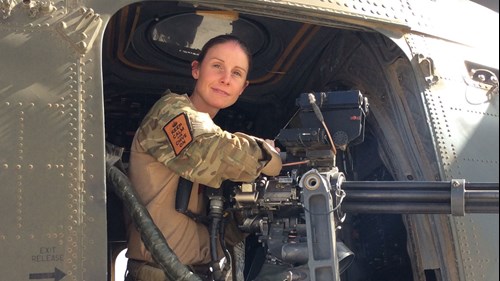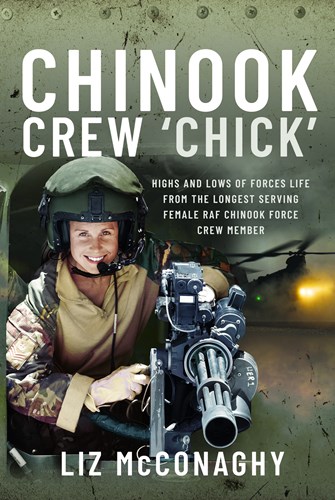The youngest aircrew medic to serve with the RAF in Afghanistan has lifted the lid on her PTSD hell and how trauma led to trying to take her own life.
Liz McConaghy was a member of Medical Emergency Response Team (MERT) and at the age of 21 was on the frontline in Helmand Province, dropping into war zones in a Chinook helicopter to support British casualties.
Liz was deployed for ten highly kinetic tours and flew over 3,000 hours until she was finally discharged due to a neck injury.
Without the uniform and the sense of identity it provided, her world unravelled and what she had witnessed on the battlefield took its toll.
In August 2020 she attempted to end her life with an overdose.
"The main trigger for me knowing that I was really in a bad way was one night when I couldn't sleep. I started looking up the back catalog of the soldiers that I picked up on MERT who died. It really started to fester in my head, and I started to get just random thoughts in my head that I couldn't get rid of," McConaghy shared.
Her career began at the age of 19, and she quickly rose through the ranks, becoming a sergeant after basic training.
Serving on MERT, she was tasked with recovering wounded soldiers and witnessed some of the most horrifying scenes of human suffering.
"I always used to look at the casualties and the bodies that we pick up on MERT as just a really precious piece of freight because I think if I start to humanise them then that really would have been the start of the undoing of me and I think a lot of people felt the same," McConaghy said.
McConaghy’s Chinook, despite taking her to the worst war zones, made her feel safe, even though her daily reality was filled with danger.
"My love of my life was the chinook. It's such a unique aircraft; the smell of the aircraft will stay with me forever," she reflects.

As the situation in Afghanistan escalated, McConaghy’s responsibilities grew, leading to some harrowing experiences on the medical emergency response team.
Her busiest day involved 14 back-to-back missions, retrieving injured troops and bodies. The effort and sacrifices made in Afghanistan significantly advanced medical science and gave McConaghy a profound sense of purpose.
In 2019, after over 3,000 hours on a Chinook, McConaghy was medically discharged due to neck issues. Without the uniform and the sense of identity it provided, she felt invisible.
The 2020 lockdown further unravelled her mental state, leading to a harrowing episode in August where she attempted to take her own life with an overdose.
Waking in intensive care two days later, McConaghy's feelings had completely shifted; she realised she didn't want to die. With the support of the veterans' system, McConaghy began her recovery journey, recognising how crucial that support network was to her survival.
"If you would like to help veterans like me rebuild their lives after service, then please play the Veterans' Lottery. It really does make a difference.”
To purchase Liz's brilliant book, click below:











